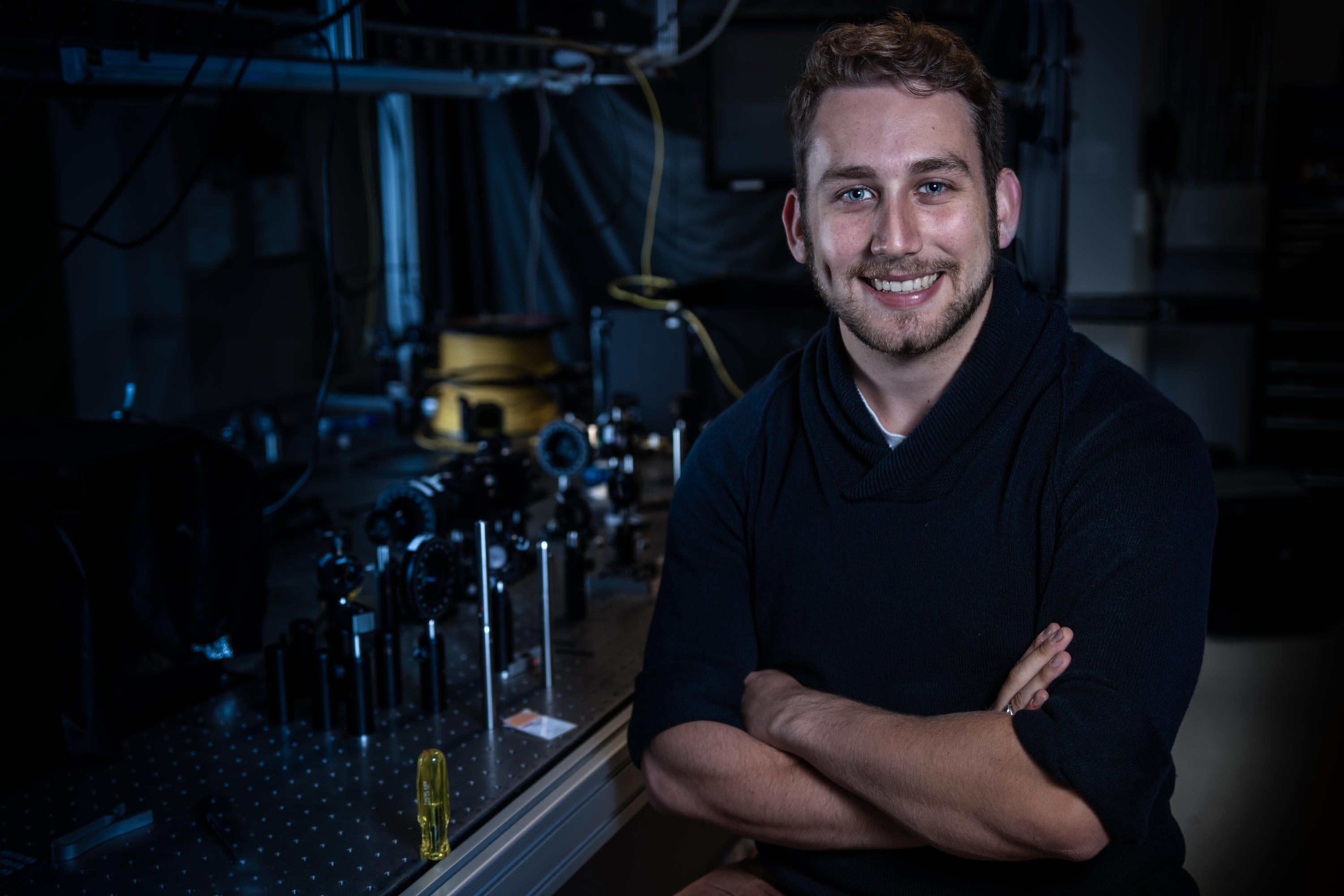
An Institute for Quantum Computing (IQC) graduate student exploring quantum optics is one of Canada’s newest Vanier Scholars.
Andrew Cameron, a first-year PhD candidate in the Department of Physics and Astronomy, joins a select group of students from across the country recognized for their academic excellence, leadership, and research potential as part of the Vanier Canada Graduate Scholarships program. Considered one of the most prestigious graduate scholarships in the country, Vanier awards are worth $50,000 per year for up to three years.
Cameron’s research, conducted under the supervision of IQC interim executive director Kevin Resch, looks at how information carried by individual particles of light can be harnessed using the quantum phenomena of entanglement and teleportation.
Specifically, Cameron is exploring methods of manipulating electromagnetic beams consisting of a lattice of spin-coupled orbital angular momentum (OAM) states. This research could lead to significant improvements in information security and computing power.
“OAM states are of particular interest because they provide a different degree of freedom for photons involving their spatial properties,” he said. “Exploring this degree of freedom allows for high dimensional encoding of information.”
High dimensional entanglement is required for many quantum computing and quantum information protocols, including the possibility for establishing highly secure communication channels over long distances.
“Before quantum communication can be effective, it needs to be secure and robust over long distances,” he said. “Quantum optics is one avenue of making this happen.”
His PhD project is a collaboration between groups led by Dmitry Pushin, David Cory, Thomas Jennewein, and Kevin Resch.
The Vanier Canada Graduate Scholarships program is funded through the three federal research granting agencies: the Canadian Institutes of Health Research (CIHR), the Natural Sciences and Engineering Research Council of Canada (NSERC) and the Social Sciences and Humanities Research Council of Canada (SSHRC). The program is administered through CIHR.